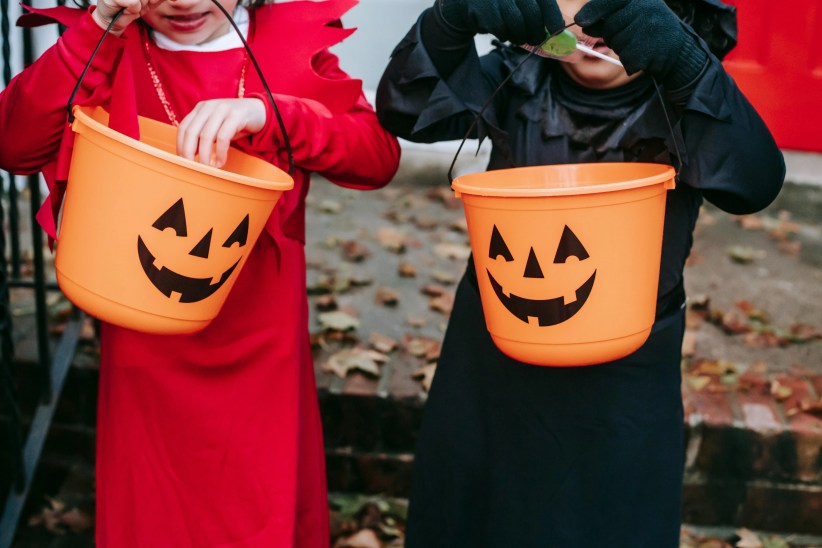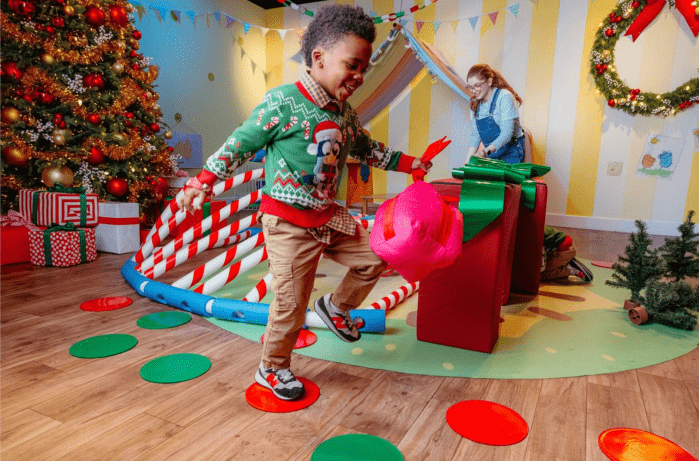
Tips for Making Halloween Fun for Autistic Children
While Halloween is always enjoyable, keeping the fun going can be difficult. The day is so jam-packed that getting tired and having a meltdown at some point is almost a given (and not only for the kids!). For autistic children, the challenge is even greater. The costumes, candy, social interaction, and busyness of the day can result in overstimulation.
We asked Dr. Chanti Waters, a Board Certified Behavior Analyst at ABS Kids, who has over two decades of experience in working with autistic children, to help us understand how Halloween can be a trigger, and what parents can do to prep for the big day.
What are some of the challenges that Halloween presents for autistic children?
There are plenty of challenges during Halloween, such as new and unfamiliar sights, sounds, and smells. Also, autistic children can react differently to things like new clothes or fabric textures. Costumes may also restrict some movement or be uncomfortable to wear, and that can cause some anxiety or unfamiliarity. To try to help that, parents should discuss it all with their child, and maybe show them photos of what they may see.
Psst… Check out our Halloween Guide for All Things Halloween in NYC!
How can parents help prepare their kids for the day?
Encourage your child to choose a costume and try them on before purchasing or committing to it. Observe how your child responds. If it’s uncomfortable, keep searching. Sometimes what we think will be the cutest costume may be uncomfortable for the child. If your child is sensitive to wearing certain types of clothes, consider a costume that incorporates something your child likes wearing and modify it. For example, if your child likes to wear a firefighter hat, consider wearing yellow or red clothing along with it. If they want to be a cat, wear black, headband ears, and a tail if comfortable for your child. Just know as a parent, you may have to adapt and modify.
Let them practice wearing their costume, and expose them to the activities you will be participating in on the big day. Will you be trick-or-treating? If so, do a dress rehearsal and practice knocking on a neighbor’s (or your own) door. If your adorable costume involves face painting, try it well in advance. You can model it first and see if your child shows interest. If yes, ask for your child’s approval before painting their face. If your child doesn’t like it, try it another day. If there is any sign of resistance, consider other options, and when it comes down to it, trick or treat with a simpler costume or without a costume altogether.
Identify which treats and how many your child may have so these boundaries are set in advance. Plan to stay close to home and know it’s okay to take a break. You might even want to create a map of your route so your child knows where they’re going. Determine in advance where you plan to go. Maybe it’s just the neighbors that your child is most familiar with, or drive to a family member’s house where they might be comfortable.
Are there places or activities parents should avoid?
You know your child best. Some children like to be around lots of people and do not mind loud sounds and surprises, but others may be more sensitive to changes in routine, want to avoid crowded activities or have their own limits for how long they may tolerate some activities. For example, a haunted house may seem fun for some, but you may want to avoid something like this if it has loud noises and flashing lights.
What is the best thing to do if trick-or-treating isn’t working out (the child becomes overwhelmed, doesn’t want to wear the costume, or even go at all)?
Parents should know that on a day like Halloween, they’ll have to adapt to their child’s pace. Just feel it out and go with what feels best. Nobody knows your child like you do.
And remember, it’s okay to change your mind. Sometimes things won’t go as planned, and it’s better to adapt as best you can rather than have a bad time on what was supposed to be a fun day or night.
Psst… Check Out How Raising an Autistic Child Looks Like (for me)
If a child is struggling, should parents end it early or encourage them to try to push through?
If you need to go home early, determine other options if your child still shows an interest. Maybe you can try another area or place, pass out candy to other trick-or-treaters at home, just watch trick-or-treaters go by, watch a kid-friendly Halloween movie, or just enjoy a treat together! You can always make the most of any situation.
What should parents (and kids) remember if the day doesn’t go as planned?
It’s okay! You can always create a new plan, even if that means just going home and finding a different way to celebrate.














